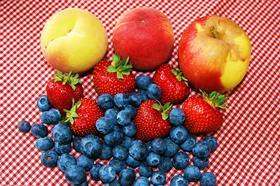
Consuming excessive amounts of fructose may worsen depression and anxiety in teenagers, new research suggests.
In the study, presented yesterday (18 November) at an annual meeting for the Society for Neuroscience, scientists at Emory University in Atlanta, USA, claimed that fructose can alter how the brain responds to stress.
People develop these brain processes during adolescence, they said, which suggests that teens may be most vulnerable to fructose’s potential effects.
'Our results offer new insights into the ways in which diet can alter brain health and may lead to important implications for adolescent nutrition and development,' lead author Constance Harrell, a graduate student at Emory, added.
Fructose is a naturally occurring sugar found in fruits and vegetables.
To explore the consequences of fructose consumption during adolescence, the Emory scientists gave adolescent and adult rats either a standard or a high-fructose diet.
After ten weeks, only the adolescent animals that consumed excess fructose exhibited depressive behavior and were measured to have developed a new stress hormone response to an acute stressor.
Among those subjects, researchers also saw alterations to the genetic pathway that helps regulate how the brain responds to stress.
Researchers didn’t observe these changes in the adult rats with the high-fructose diet or in adult and adolescent rats that consumed a standard diet.
The researchers noted that because fructose stimulates the neural pathways that affect the brain’s response to stress, it also may exacerbate anxiety and depression.



